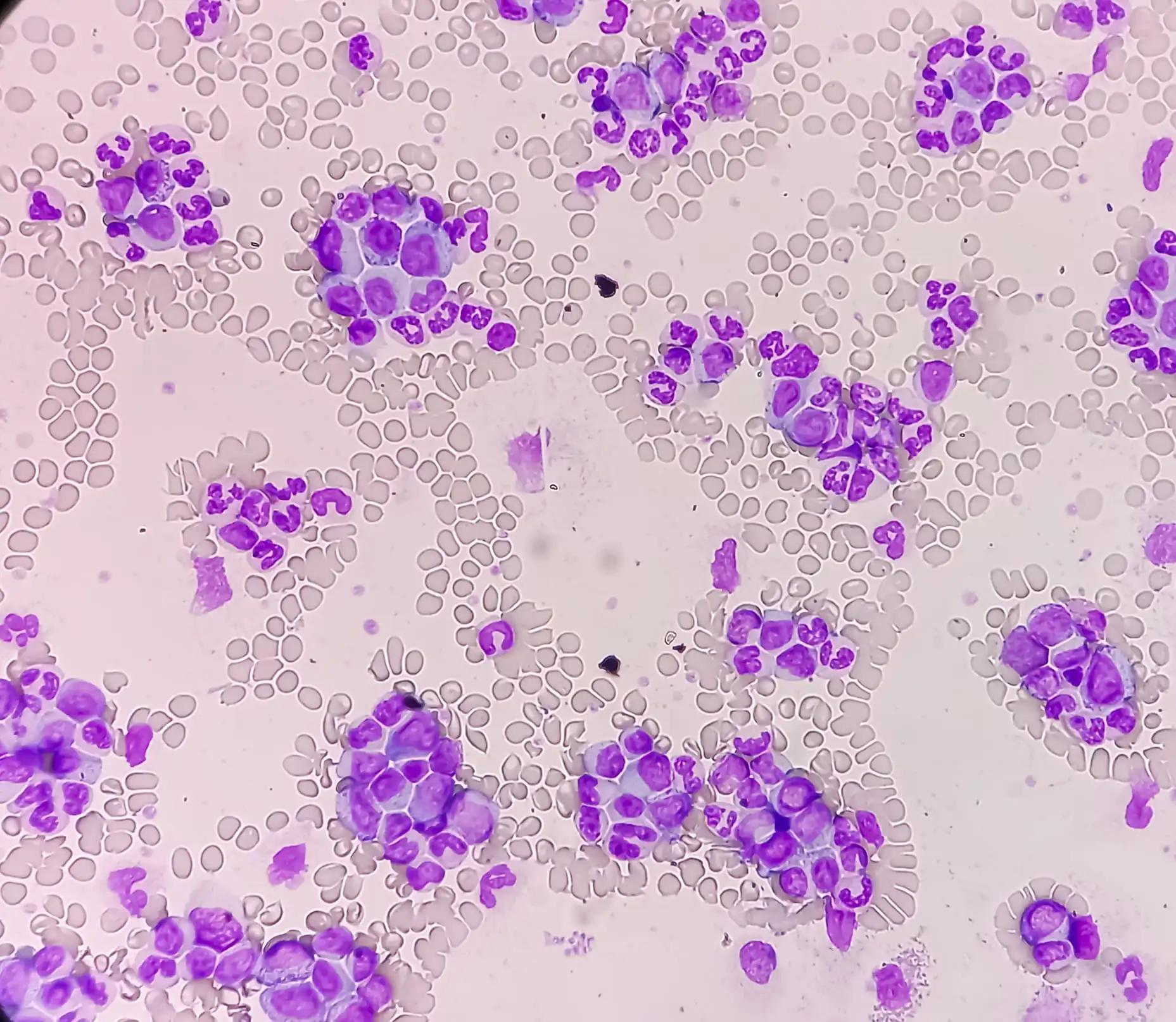KEY TAKEAWAYS
- The prospective FORUM phase III study explored two myeloablative chemo-conditioning regimens for pediatric patients under the age of 4 undergoing HSCT.
- The study reported that infants and young children who received BU- or TREO-based conditioning for HSCT had lower OS and EFS than older children, mainly due to higher relapse rates. Despite this, there was an improvement in outcomes with reduced NRM.
Relapse and non-relapse mortality (NRM) stand as the primary culprits behind treatment failure in infants and young children with high-risk acute lymphoblastic leukemia (ALL) undergoing hematopoietic stem cell transplantation (HSCT). The ideal chemotherapeutic strategy to enhance event-free survival (EFS) while minimizing NRM remains undefined.
The prospective FORUM trial employed two myeloablative chemo-conditioning regimens for children under the age of 4: a combination of fludarabine (FLU), thiotepa (THIO), and either intravenous busulfan (BU) or treosulfan (TREO) (Peters et al., JCO 2021). This study included 194 out of 202 pts. The median age at HSCT was 2.2 years.
Stem cells were primarily sourced from bone marrow (68%), followed by peripheral blood stem cells (19%) and umbilical cord blood (13%). Donors were either HLA-matched siblings (20%) or 9 or 10/10 HLA allele-matched unrelated donors (80%). Clonal genetic abnormalities were present in some patients, including BCR-ABL, TEL-AML, and KMT2A r-rearrangements. However, all patients underwent hematopoietic stem cell transplantation (HSCT) while in complete morphological remission (CR), with 142 patients in CR1, 50 in CR2, and 2 in CR3. Two different HSCT regimens were used, namely FLU/THIO/BU and FLU/THIO/TREO, in 101 and 93 HSCTs, respectively. The majority of patients (90%) received Cyclosporin-A-based GvHD-prophylaxis, while those who received MUD-grafts also received ATG and methotrexate.
As of the data cutoff, the median follow-up was 3 years (range, 3 months – 7.2 years). Three-year overall survival (OS) was 0.69±0.04, three-year EFS was 0.52±0.04, three-year cumulative incidence of relapse (CIR) was 0.44+0.04, and three-year NRM was 0.05 ± 0.02. OS and EFS did not vary between pts below 2 years and those aged 2-4 years at HSCT. Patients who had transplanted in CR1 had better EFS (0.58±0.04) compared to those who did not (0.36±0.07, p=0.01) due to a higher CIR. On the other hand, it was noted that the OS was worse for the 53 pts with KMT2A-rearrangements (three-year OS 0.56±0.08 vs. 0.73±0.04, p=0.040).
It was also found that EFS for patients below 1 year of age at diagnosis was significantly inferior compared to older patients (at three years, OS was 0.63±0.05 and 0.76±0.05). In terms of FLU/THIO/BU and FLU/THIO/TREO-group, at 3-yrs, OS was 0.63±0.05 and 0.76±0.05, while EFS was 0.52±0.05 and 0.51±0.06 (p=0.794) respectively (p=0.075). However, it was observed that pts who relapsed post-HSCT had a better three-year post-relapse OS after FLU/THIO/TREO than FLU/THIO/BU (0.38±0.11; 0.16±0.07, p = 0.012) respectively.
In multivariate analysis, remission > CR1 and KMT2A rearrangement negatively influenced OS, while EFS was worse for pts who underwent HSCT > CR1 or had an ALL diagnosis below 1 year of age. However, donor type, stem cell source, age between 1 and 4 years at HSCT, conditioning regimen, and pre-HSCT PCR-MRD positivity did not significantly impact the outcome. One-year transplant-related mortality (TRM) was low for both conditioning regimens.
In the FORUM trial, infants and young children undergoing HSCT after conditioning with either BU- or TREO-containing regimens exhibited lower OS and EFS compared to children aged 4 years and older, primarily due to a higher CIR. This shows an improvement over the previously reported series due to reduced NRM. However, KMT2A rearrangement remains a challenge in achieving successful HSCT outcomes.
Source: https://ebmt2023.abstractserver.com/program/#/details/presentations/1738
Clinical Trial: https://classic.clinicaltrials.gov/ct2/show/NCT01949129
Peters, C., Poetschger, U., Dalle, J., Yesilipek, A., Stein, J., Pichler, H., Balduzzi, A., Locatelli, F., Sedlacek, P., Wachowiak, J., Güngör, T., Ifversen, M., Renard, M., Truong, T.H., Staciuk, R., Shaw, P.J., Kriván, G., Buechner, J., Bader, P. Paed3-01 LOW TOXICITY WITH MYELOABLATIVE CHEMO-BASED CONDITIONING FOR CHILDREN WITH ALL BELOW 4 YEARS OF AGE. RESULTS FROM THE PROSPECTIVE MULTINATIONAL FORUM-TRIAL.



